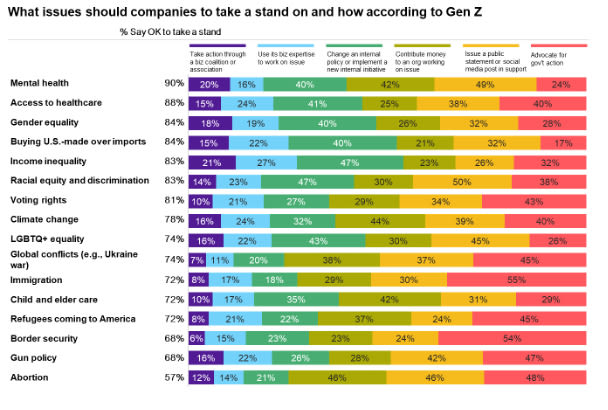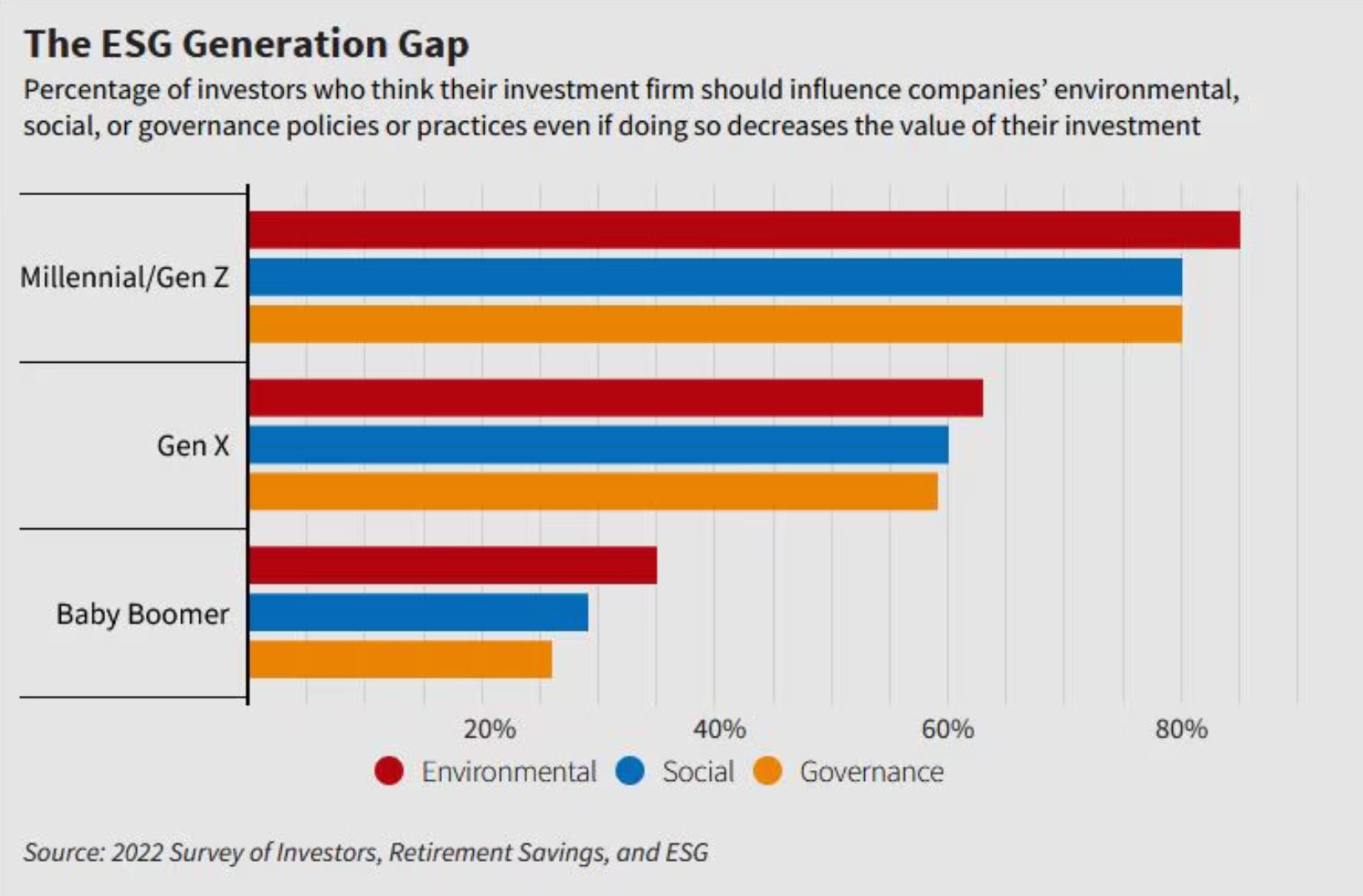Most businesses can’t discuss business growth without strategizing how to acquire younger customers. Younger customers can translate into higher lifetime value — they build habits around a company’s products or services and thus, spend more money throughout their lifetime.
Attracting Gen Z comes with an added bonus — if you can convert them, you acquire potential brand ambassadors with a large digital footprint. Known as the ‘digital native’ generation, they grew up with the internet as a central presence in their lives. They are notoriously online, expert content creators, and social media activists. Brands have found ways to leverage this grassroots marketing apparatus and convert it into meaningful user-generated content and free, or minimally sponsored, promotions.
Additionally, Gen-Z is more outspoken, altruistic, progressive, and social-impact minded than the generations that came before it. Their access to social media and the 24-hour news cycle keeps them tapped into the rising global issues before us: racial injustice, wealth inequality, climate change, LGBTQIA rights, among many others. Where millennials were captured by the Joseph Kony video, Gen-Zers are captured by… everything. And they’re motivated and mobilized to make changes. The easy-to-access content from social media allows issues to be distilled down into digestible, attention-grabbing formats. And like nodes in a network, a single issue can spread quickly through virtual word-of-mouth channels.
A Deloitte survey found that Gen Z is deeply concerned about social issues, particularly climate change, income inequality, and discrimination. The survey also found that Gen Z is more likely to believe that businesses and governments are not doing enough to address these issues, leading them to take action themselves, whether through lifestyle changes, activism, or choosing to work for purpose-driven organizations. According to a Kiva survey on how Americans are motivated to make a difference in the world, Gen Z are also more likely than some of their older counterparts to feel the most effective ways are to volunteer, donate and protest.

And brands are noticing. They’re not only capitalizing on the enthusiasm and digital footprint of this generation through sponsored content and influencers; they’re also aware of how Gen Z’s mindfulness about their spending habits could impact their brand's bottom line.
Aligning your brand with social impact can help attract Gen Z
So how do you convert this group in today’s attention economy? By aligning with social impact, you can differentiate your brand to this younger audience, convert consumers into brand advocates, and drive business growth.
73% of Gen Z are willing to pay more for products that are sustainable and socially responsible
88% of Gen Z said they prefer brands that take a stand on social issues and advocate for change
90% of Gen Z believe companies must act to help social and environmental issues.
Not only is Gen Z prioritizing which companies they shop at based on their social impact stances, they’re also building investments based on companies that have a clear ESG (environmental, social, and governance) strategy. They are generally considered to be more financially savvy compared to previous generations because they have had access to a wealth of easy-to-understand financial information. With the ability to learn about personal finance, investing, and money management from a young age, they are prioritizing saving and investing early on, creating patterns and habits of long-term financial planning.

This financial savvy is translating into social impact and ESG investments. Younger generations are much more likely to build mutual funds that are ESG-aligned. And since they are more likely to invest in stocks, especially ones that are environmentally- or socially-focused, having a compelling ESG strategy with a clear measurement framework integrated into your business can mean powerful long-term returns from the youngest generation of investors.
In response to these trends, philanthropy, once a strategy tucked away in the foundations of large organizations, is being put at the forefront of business strategy, as companies see how much value ESG strategies have for catching the attention of this socially-minded audience.
The returns don’t stop there. By aligning with ESG/social impact you are not only tapping into a large pool of investors or consumers. If done well, you are building a network of brand ambassadors who help to promote your brand further, creating a virtuous cycle of growth.
And it’s critical that you do it well — 75% of Gen Z will do research to see if a company is being honest when it takes a stand on issues. With great financial power and social media reach, comes great responsibility. Brands need to be extra careful to not ‘virtue signal’ and ‘greenwash’. This savvy group of consumers and employees do their research and share it with their friends. Brands that align with social impact have to be intentional and demonstrate the true impact of the causes they are supporting and why.
In this way, Gen Z is helping propel a new era of social change, where large organizations are being held accountable for their potential to play a positive role in society, and most are leaning into this by seeking ways to make a tangible impact and showcase it to their audience.
Tools that provide transparency and data about organzation’s social impact are going are particularly helpful. Selecting nonprofits that can help you measure your charitable investment outcomes and translate that into brand value will help you better reach Gen Z audiences.
If this is new to your organization, and you’re wondering how to build an ESG framework that advances business goals and shareholder votes, compels individual investors, and galvanizes Gen Zers to become avid consumers and long-term brand ambassadors, get in touch to discuss Kiva’s partnership options.















